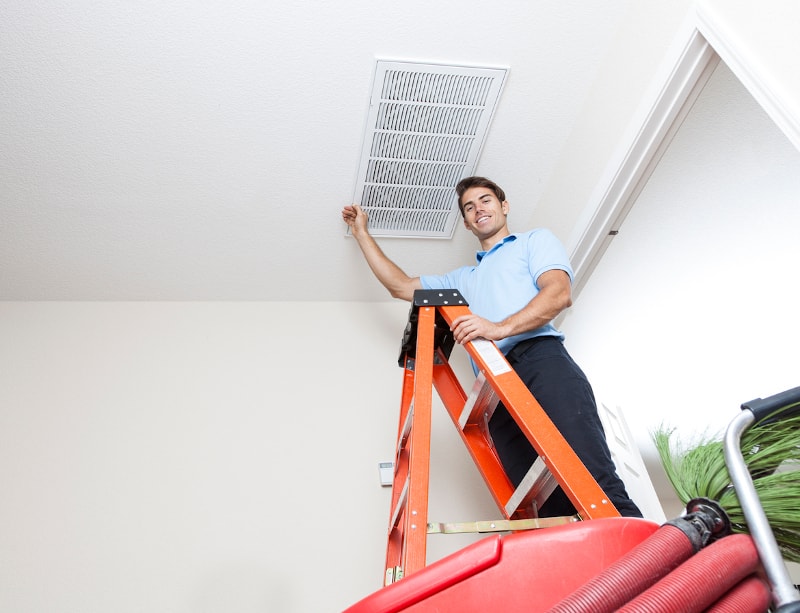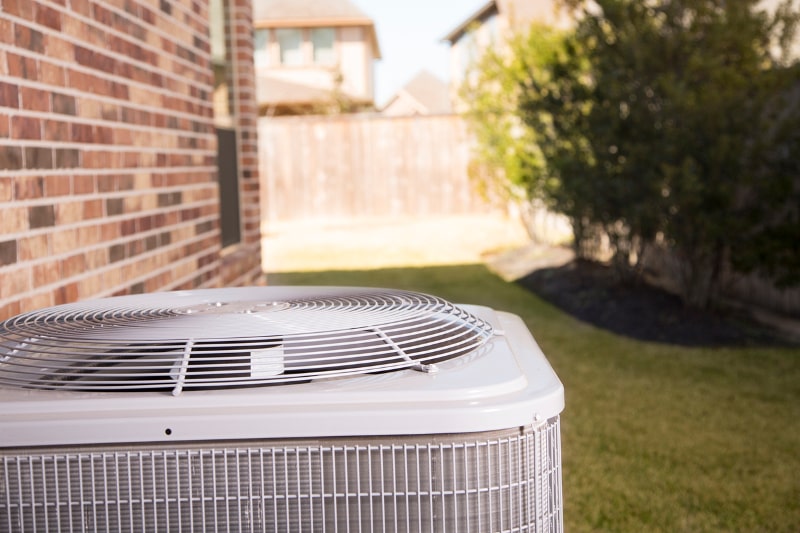Heat Pump Running All The Time

Many homeowners experience a frustrating situation: their heat pump running constantly. It's worrying, not only because of the potential for higher energy bills, but also because it can indicate a deeper underlying problem. This article will guide you through a systematic troubleshooting process to help you identify the cause and potentially fix it yourself. Remember, safety always comes first. If you're uncomfortable with any step, or if the problem persists, don't hesitate to call a qualified HVAC technician.
Understanding Why Your Heat Pump Might Be Running Constantly
Before diving into the troubleshooting, let's quickly understand why a heat pump *might* run for extended periods under normal circumstances. Heat pumps work differently than traditional furnaces. They don't generate heat; instead, they *transfer* it from one place to another. In heating mode, they extract heat from the outside air (even when it's cold!) and move it inside. This process is more efficient than burning fuel, but it also means they often run longer cycles, especially when outdoor temperatures are very low. A heat pump running constantly isn't necessarily always a sign of a problem, *but* when you notice it running more than usual, or not heating the house effectively while doing so, it is time to investigate.
Step-by-Step Troubleshooting Guide
Step 1: Check Your Thermostat Settings
This might seem obvious, but it's the most common culprit. Make sure your thermostat is set to the correct mode (HEAT) and temperature. Also:
- Ensure the thermostat is set at a reasonable temperature. A large temperature difference between your desired temperature and the current room temperature will cause the heat pump to work harder and longer.
- Check the program settings. Is the thermostat programmed to a significantly higher temperature during certain hours? This could explain the constant running.
- Verify the thermostat isn't in emergency heat mode. Emergency heat bypasses the heat pump and uses electric resistance coils for heat. This is very inefficient and will cause the system to run constantly. Typically indicated by 'Emergency Heat' or 'Aux Heat' on the thermostat display. If it is on, determine why the system is in Emergency Heat mode. It is often triggered by a malfunctioning heat pump system.
- Replace the thermostat batteries. A weak battery can cause erratic thermostat behavior.
DIY Fix: Adjust the thermostat settings as needed. Replace the batteries. Observe if the heat pump cycling becomes normal after the change.
Step 2: Inspect the Air Filter
A dirty air filter is a very common cause of heat pump problems, including constant running. A clogged filter restricts airflow, forcing the heat pump to work harder and longer to maintain the desired temperature. This can also lead to overheating and potential damage.
- Locate the air filter. It's usually near the indoor unit or in the return air vent.
- Remove the filter and inspect it. Is it visibly dirty, dusty, or clogged with debris?
DIY Fix: Replace the dirty air filter with a new one of the correct size and type. Check the filter monthly and replace it as needed, especially during periods of heavy use. A clean air filter improves efficiency and prolongs the life of your heat pump.
Step 3: Examine the Outdoor Unit
The outdoor unit is a crucial component of your heat pump system. Obstructions and ice buildup can significantly impact its performance.
- Check for obstructions. Ensure the outdoor unit is free from leaves, snow, ice, branches, and other debris. These can block airflow and reduce efficiency.
- Inspect for ice buildup. In cold weather, it's normal for some ice to form on the outdoor unit. However, excessive ice buildup can indicate a problem with the defrost cycle.
- Listen to the fan motor. A faulty fan motor can also contribute to constant running and potential overheating.
DIY Fix:
- Clear any obstructions around the outdoor unit. Carefully remove leaves, branches, snow, and other debris. Do not use sharp objects that could damage the unit.
- If you notice excessive ice buildup: Sometimes a manual defrost cycle can help. You can try turning off the heat pump at the thermostat for an hour to let the ice melt. Then turn it back on to heating mode. Pay attention to how long the system takes to defrost during normal operation. If it doesn't defrost on its own in a reasonable amount of time, there could be a more serious issue.
Step 4: Check the Indoor Vents
Restricting airflow inside the house can also make the heat pump work harder than it should.
- Ensure all vents are open and unobstructed. Closed or blocked vents can restrict airflow and force the heat pump to overwork.
- Check for furniture blocking vents. Make sure furniture, rugs, or curtains aren't blocking vents.
DIY Fix: Open all vents in rooms you're using. Rearrange furniture to ensure clear airflow from vents.
Step 5: Inspect the Ductwork (If Accessible)
While not always easily accessible, inspect any exposed ductwork for obvious issues.
- Look for disconnected or damaged ductwork. Leaks in the ductwork can allow heated air to escape, forcing the heat pump to run longer to compensate.
- Check for insulation issues. If the ductwork isn't properly insulated, it can lose heat to unconditioned spaces.
DIY Fix: If you find minor disconnections, you might be able to reattach them with duct tape (though professional sealing is recommended for long-term solutions). If you notice significant damage or insulation issues, consult a professional.
Step 6: Listen for Unusual Noises
Pay attention to any unusual noises coming from either the indoor or outdoor unit.
- Grinding, squealing, or rattling noises. These can indicate mechanical problems with the fan motor, compressor, or other components.
- Hissing or bubbling noises. These could suggest a refrigerant leak.
DIY Fix: There are no DIY fixes for mechanical issues or refrigerant leaks. These require professional attention.
When to Call a Professional
If you've gone through all the troubleshooting steps above and your heat pump is still running constantly, it's time to call a qualified HVAC technician. The following situations definitely warrant professional intervention:
- Refrigerant Leak: Refrigerant is essential for the heat pump's operation. Leaks can be dangerous and require specialized equipment to repair. *Do not attempt to handle refrigerant yourself.*
- Compressor Problems: The compressor is the heart of the heat pump. If it's malfunctioning, the system won't work properly. Compressor repairs are complex and require specialized tools and knowledge.
- Defrost Cycle Issues: If the heat pump isn't defrosting properly, it can lead to excessive ice buildup and reduced efficiency.
- Electrical Problems: Electrical issues within the heat pump can be dangerous and should only be handled by a qualified electrician or HVAC technician.
- Strange Noises: Persistent or unusual noises, as described above, are a sign of a mechanical problem that needs professional diagnosis and repair.
- The problem persists after trying all DIY solutions.
Preventative Maintenance
The best way to prevent your heat pump from running constantly (and to avoid costly repairs) is to perform regular preventative maintenance. Consider the following:
- Schedule annual professional maintenance. An HVAC technician can inspect and clean the system, check refrigerant levels, and identify potential problems before they become major issues.
- Regularly clean or replace air filters (monthly).
- Keep the outdoor unit clear of debris.
- Monitor the system's performance. Pay attention to any changes in heating or cooling, unusual noises, or increased energy bills.
Final Thoughts
A heat pump running constantly can be frustrating, but by following these troubleshooting steps, you can often identify and resolve the issue yourself. Remember to prioritize safety and don't hesitate to call a professional when needed. Regular maintenance is key to ensuring your heat pump operates efficiently and reliably for years to come.










